Our pond under attack!
Duckweed!
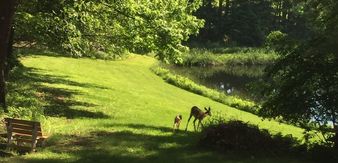
This whole Spring, I was looking forward to taking up my summer routine of going for a swim in the morning. Then at the beginning of June, I discovered this green cover on the pond. When I looked at pictures which I took only two weeks earlier, I confirmed that whatever it was, it had not been there two weeks before! When I checked I knew immediately that it was duckweed. Within days, the entire surface was a one inch thick carpet of green.
In the 25 years since we had built our approximately one quarter acre pond, we had never seen such an invasion of this 'volunteering' water weed! Since our pond is completely landlocked (fed through a screened ground spring) and therefore something of an experiment, we never knew how it came to colonize our pond. The suspicion was - according to lore, that it arrived clinging to the feathers of ducks that had picked it up on other ponds as they migrated north in an earlier season. We don’t know. In any event, it colonized our pond about 5-7 years after we built it. But it never spread out more than at the fringes of the weeds along the pond edges. It was hardly noticeable.
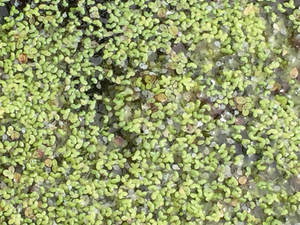
A friend who flies from NY to the Midwest each year about this time, confirmed that he also observed most of the many ponds and lakes along his initial east coast flight path were covered with duckweed. So, what has caused this sudden bloom of duckweed? I don’t know yet! It seems to be related to the weather, which I can't yet confirm. But I needed to come up with a solution and understand what duckweed meant for me in my pond.
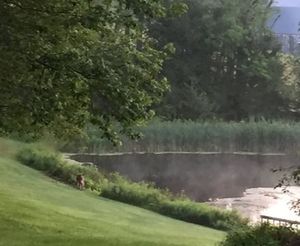
I think this question will lie firmly in how you want to use your water resource. For us, we built our pond to swim, fish and watch wildlife (see many earlier posts). We have taken endless pleasure from watching deer, bear, minks, raccoons, turtles, frogs, dragonflies, bats, bald eagles, blue herons, barn swallows, hawks, and endless numbers of migrating birds come and rest and feed before continuing on to far northern nesting grounds. It has been an oasis for many travelers.
We built it mostly to bring in the diverse wildlife that a water feature and an 'edge effect' brings. (An 'edge effect' refers to the edge environment between two different ecosystems, like a field and woods, where more opportunities to feed and breed exist and therefore increase species diversity. Beaver Ponds are a tremendous example of this, they can increase species diversity by many multiples!)
Unfortunately, an overwhelming carpet of duckweed denies us much of that. Controlling duckweed becomes important to us. So of course, how we control it is also very important. Do we do it with chemicals (herbicides, poisons) or mechanically?
Duckweed Good?
You can say that it kills other growth in the water, for example algae. If you have a severe problem with algae and other growths in the water because of the warming temperatures from solar gain (the sun heating the water), duckweed will shade out most of the algae. If you mechanically remove duckweed, it is a very healthy feed for animals (our deer loved what we eventually pumped out!) and it is good for livestock. In some Asian countries it is considered a delicacy to eat and it is commercially grown for human consumption. It is reported that it will also absorb toxins in the water- if that is a problem. Of course you wouldn't want to use it as a feed in that case.
Duckweed Bad?
It looks terrible! (Sorry, this is how most people feel when they look at the thick green mat on top of the water.) If it covers the entire pond, the entire ecosystem has been disrupted!
No eagles, hawks, bats, barn swallows, herons, dragonflies or possibly mosquitoes, can possibly carry on their lives! (Yes mosquitoes are very important! They are one of the fundamental foods that support the higher animals we mentioned above.)
They all depend on the rich environment bubbling up to the water’s surface, but most importantly, the open water that sustains their food supplies.
We decided to remove the duckweed mechanically and not use chemicals or herbicides. This has been an adventure in itself!
No one seems to have a good mechanical answer, so we hybridized our own from several sources, We'll post it shortly and you can decide if you can use it if you have this problem.
Having said all that, after we pumped out the duckweed, a Blue Heron couple returned to fish after we cleared the pond’s surface. I think that is a good sign.
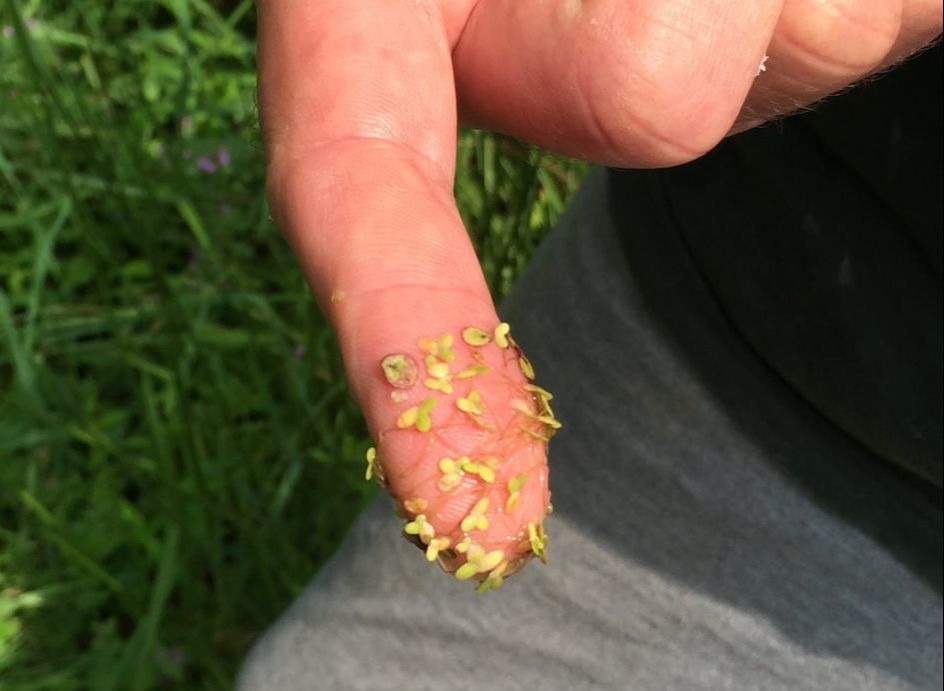
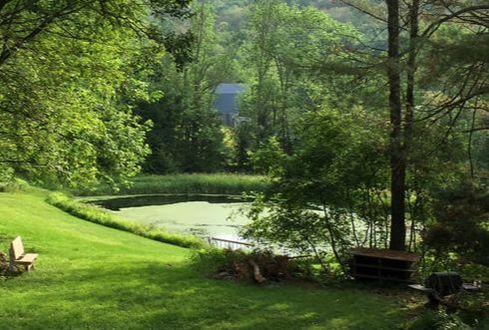
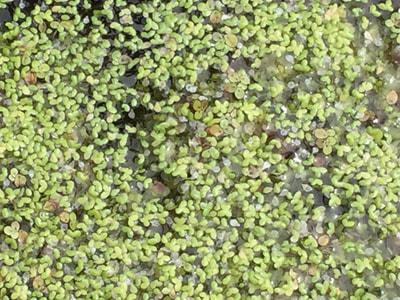
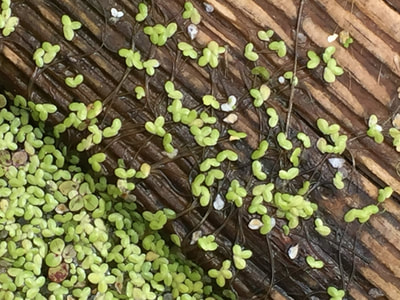
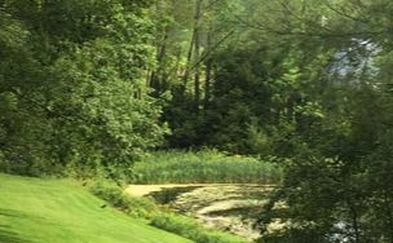
 RSS Feed
RSS Feed